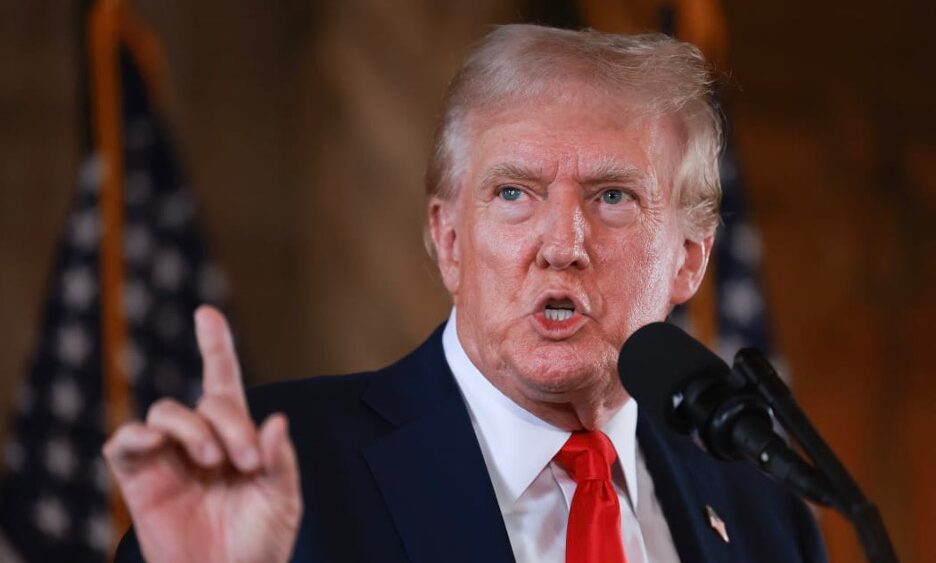Editorial (November 6, 2024)
With former President Donald Trump reclaiming the White House in the 2024 election, his victory has sparked a wave of reactions globally, especially as it precedes the COP29 summit in Baku by only a week. Trump’s return comes at a critical moment, potentially redefining the global climate landscape as he holds significant sway over the U.S. role in international climate negotiations.
Many speculate that Trump’s policies could undo the recent U.S. commitments to clean energy, greenhouse gas reduction, and climate finance—goals established under President Biden to help combat climate change on a global scale. A revived Trump administration could dampen the momentum of countries already stretched in their climate targets and underfunded in resilience efforts.
Trump’s renewed focus on fossil fuels and his potential rollback on clean energy incentives will cast a shadow over COP29 discussions. Many nations will be deeply concerned about how the absence of a supportive U.S. could impact long-term climate goals and financial support mechanisms. For instance, the Green Climate Fund, a key initiative to support adaptation in vulnerable countries, such as Iraq, faces a shortfall in international funding without U.S. contributions. Iraq is among many developing nations already grappling with the severe impacts of climate change and might struggle to secure essential financing, creating uncertainty in achieving climate resilience.
The Paris Agreement’s Future Under Trump
Trump’s first term saw the U.S. withdraw from the Paris Agreement in 2017, a move that isolated the country in international climate negotiations. Should Trump follow a similar path this time, it would again place the U.S. outside collective emission reduction commitments. Under Biden, the U.S. set ambitious goals to reduce emissions by half by 2030, but Trump’s expected reversal could shift much of this burden to the European Union, and other leading economies. Analysts caution that this could trigger a “domino effect,” encouraging other nations to weaken their climate commitments, undermining the global effort to limit warming to 1.5°C.
Trump’s win is expected to reignite his support for coal and oil, decreasing restrictions on drilling and fossil fuel production on federal lands. This stance could diminish investment in renewable energy sources like wind and solar, delaying the U.S.’s contribution to the global clean energy transition. Proponents of renewable energy worry that a drop in federal support will slow the momentum of green innovations critical to combating climate change.
Climate change has increasingly been recognized as a national security issue for the United States, particularly due to its impact on migration and geopolitical stability. Under Biden administration, the U.S. prioritized climate-induced migration, particularly with a focus on regions vulnerable to climate-driven displacement, such as Central America and the Middle East. Trump’s previous administration placed less emphasis on such issues, focusing more on national priorities than on climate’s global implications. Experts warn that without continued U.S. support for resilience initiatives, climate migration and related conflicts could worsen, particularly in developing regions already experiencing extreme weather events and resource scarcity.
A Global Effort: Can Others Step Up?
While the U.S. remains a central player in global climate efforts, other nations may step up in its absence. The EU and other major economies have committed to net-zero targets, yet a lack of U.S. leadership could reduce coordination and financial support. COP29 may witness hesitation among attendees to adopt aggressive climate targets, given the uncertainty surrounding U.S. engagement and the potential strain on international funds.
As the world battles rising temperatures, extreme weather, and rapid environmental degradation, the question of U.S. leadership on climate change is more pressing than ever. Trump’s policies could significantly alter the landscape of global climate action, placing the onus on other nations to carry forward ambitious goals. This pivotal moment calls for a resilient and united approach to global climate cooperation, regardless of political shifts within the U.S., as the world faces the daunting challenge of meeting its climate goals.
Harry Istepanian is a PMP certified, independent Chartered Engineer (CEng.) with more than 30 years of experience in large-scale power and water utility and IWPP projects in developing countries, including SE Asia and MENA in addition to New Zealand and Australia.
![Iraq Climate Change Center [IC3+]](https://iraqclimatechange.org/wp-content/uploads/2024/06/logo2.png)

